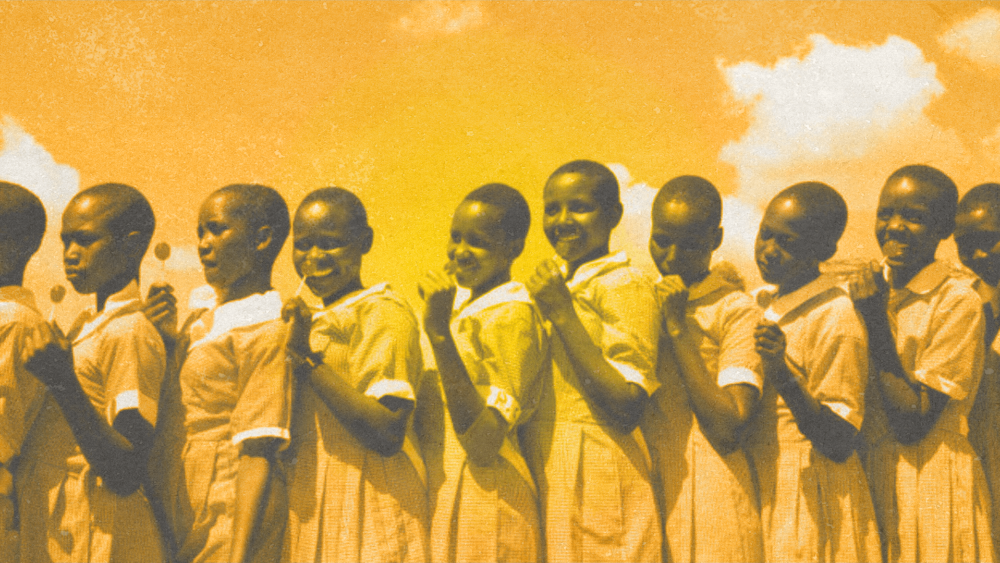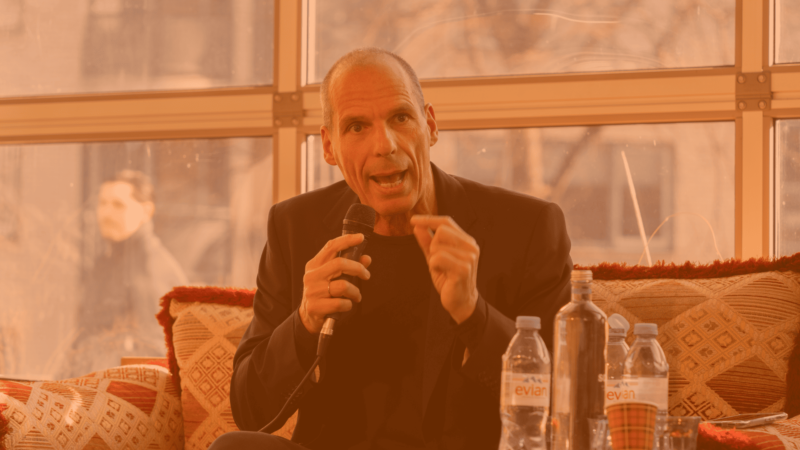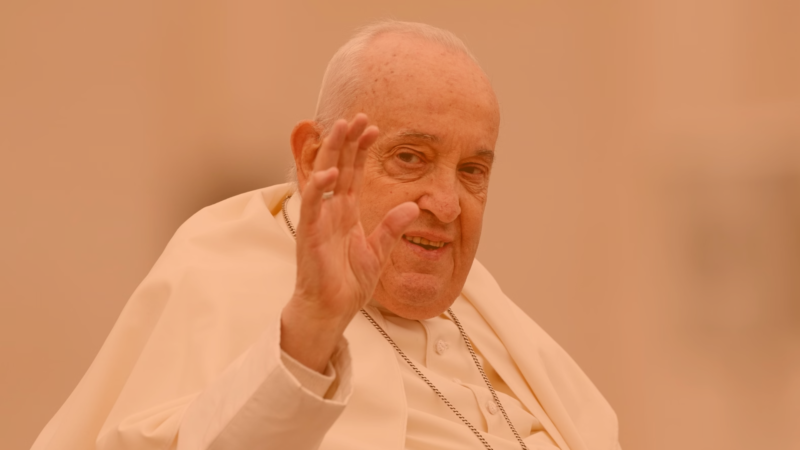The horrific and medieval practice of Female Genital Mutilation has been commonplace in Africa for a long time but it is now happening in Europe too. Awareness of its barbarity needs to be raised to bring it to an end once and for all
How many deaths of African girls will it take until we know that Female Genital Mutilation (FGM) is evil? At infancy, a lot of girls are subjected to genital cutting in Africa and in Europe, an underground lucrative trade practiced in secrecy. It is criminal here in Europe, and even in some African countries, to practice this horrific and medieval tradition which has no place in the 21st century. Unfortunately, big money is made in this trade, which keeps it alive. Some mothers will go to great lengths to have daughters circumcised but, because some girls do not survive genital cutting in African countries, girls from rich families are sent to Europe for circumcision by qualified doctors who eliminate the chance of death in the process, although it does not excuse the practice in any way.
Origins of FGM in African communities
It is not clear when and where female genital cutting originated from. Some journals say it originated in ancient Egypt (today’s Sudan) and the Middle East through Arab slave trade of black women and the arrival of Islam in the African continent. Today, in many countries in Sub-Saharan Africa, FGM is prevalent to this day, a culture and tradition deeply entrenched in communities in that region. In Chad, Burkina Faso and Mali, nine in ten women have undergone genital cutting. About 30 African countries practice FGM, and it’s not specific to regions in the Sahel.
According to Fadumo Korn in Munich, an eminent advocate for the abolition of genital cutting of girls in Africa and in Europe, genital cutting of African women is as old as 5,000 years, and to break it needs concerted and combined efforts in global spheres, and platforms, by actors in Africa and Europe. Again, the challenges facing the eradication of FGM is that it is the mothers who are perpetuating the old practice and the willingness of genital cutters, the ‘grandmothers’ who have perfected the practice want to keep this intact, as it is a lucrative business for them. The same ‘grandmothers’ are contracted to visit European countries, camouflaged as tourists for the purpose of genital cutting of girls who will have been assembled from other European countries.
Why FGM of African girls: A tradition and culture of generations
The UN estimates about 200 million women have undergone FGM in the world. It is not specific to African communities only. However, in African societies, FGM is mostly to control women’s sexuality. A woman who did not undergo such a procedure is considered a dishonourable prostitute. Her clitoris implies masculinity: it must be removed to reduce the maleness in her female anatomy.
The practice became part of a tradition, a belief system to many communities in the Sub-Saharan region that continued for centuries and is now accepted as the norm. Before a girl can be accepted as an “adult” and “clean” she must undergo FGM. The pain that women endure in sexual relationships means that the men have the upper hand all the time. The patriarchal settings, too, allow female genital cutting of girls as a cultural milieu to be extended from one generation to the next. There is a wider belief that a girl who never underwent FGM is dirty: a beautiful and clean girl is the one that has undergone cutting. In a nutshell, genital cutting is a symbol of a girl’s beauty and cleanliness.
Short-term and long-term effects
According to the World Health Organisation, the short-term and long-term effects of FGM include, but are not limited to, chronic severe pain and excessive bleeding, difficulty when passing urine, cysts, infections, infertility, psychological problems due to chronic pain, diminished sexual pleasure, complications in childbirth and higher risk of new-born deaths.
What does UN Women specifically say about FGM?
According to UN Women regarding FGM: “It is one of the most vicious manifestations of the patriarchy that permeates our world.” FGM is “an abhorrent violation of fundamental human rights that causes lifelong damage to the physical and mental health of women and girls”. African countries are signatories to the relevant conventions (Convention of the Right of the Child, CEDAW etc.).
“Communities that practice female genital mutilation report a variety of social and religious reasons for continuing with it. Seen from a human rights perspective, the practice reflects deep-rooted inequality between the sexes, and constitutes an extreme form of discrimination against women. Female genital mutilation is always carried out on minors and is therefore a violation of the rights of the child. The practice also violates the rights to health, security and physical integrity of the person, the right to be free from torture and cruel, inhuman, degrading treatment, and the right to life when the procedure results in death”. (World Health Organization, 2008)
Challenges of tackling and eradicating FGM in Africa and Europe
However, in African societies, the reality on the ground is that girls are still subject to FGM, nothing has changed. This tradition is practiced by powerful old women, matriarchs in their own rights: the practice cannot be eradicated easily; genital cutters enjoy a special status in societies that they will not give up so easily: They are respected women mainly because of their age and the role they play in society, but not forgetting the economic factor that entices the continuation of genital cutting.
There is a political element in the failure of African countries to abolish genital cutting of girls in societies altogether. Politicians, even women, have openly played down complaints over FGM out of fear of losing elections. Again, there are women organisations fighting against this practice in African societies. Challenges in fighting deep-rooted injustices of centuries could be a tall order for them. The financial means to create awareness campaigns about the dangers of FGM are not available. Again, the culture of silence in African communities plays a part in concealing the practices: Genital cutting is done in deep secrecy without traces and knowledge of the authorities, or they just overlook such controversies that put them in danger of being labelled rebellious to the local population.
In Europe, and in particular Germany, there are African women who seek asylum on the grounds of fear from their countries of origin that their daughters will be subjected to FGM. The Geneva Conventions protect such cases because they are accepted as genuine cases worth affording protection. It is, however, inconceivable, how the same mother would subject her daughter to genital cutting elsewhere in Portugal or France. It is established fact that there are medical establishments who secretly operate on these girls clinically, reducing deaths because of the lucrative aspect of it.
Some girls from Africa who do not come from rich families have the procedure done by their grandmothers using non-clinical methods. The girls often develop infections that need immediate hospital attention. But instead, they conceal genital infections and delay sending the girl for treatment for fear of it being known that an infection has occurred. The advanced stages of infection often result in death as medical doctors are unable to recognise the root causes of infection if it is advanced.
The German constitution on integrity, a fundamental right of all people
“Every human being has the right to have his or her body and mind protected by the state, not violated,” states the German constitution. This law should be applicable to African girls living in Germany and the rest of Europe too. FGM is a crime stipulated in the German constitution and punishable by law. The eradication of FGM should be easier, given that institutions are said to be on alert about these practices. It must begin with the medical academic curriculum at universities. The medical fraternity Europe must be upfront in situations related to FGM in their institutions to effectively fight against it.
Another aspect is the legal position of African women who violate this law: what does the law say about those who carry out FGM?
The EU position on FGM in Europe
“Although it is illegal in the EU and some member states prosecute even when it is performed outside the country, it is estimated that about 600,000 women living in Europe have been subjected to FGM and a further 180,000 girls are at a high risk in 13 European countries alone,” the EU Parliament stated in 2020. It is, however, of great importance to clearly stipulate the consequences in terms of legalities so that African women know them. EU laws must be able to stipulate exactly the repercussions of the law in simple and in plain legal language.
Criminal syndicates that cut across EU borders and the African continent must be brought to justice. The lives of African children must be protected by institutions in the EU and in Africa. There should be coverage about genital cutting of African girls on social media in the EU to raise awareness about the wickedness of FGM perpetrated by both people in Africa and qualified doctors in the EU who will do due to it being a lucrative business.
How can DiEM25 assist in eradicating FGM of African girls in the EU?
- Realise that FGM transcends national borders of EU especially Germany, Portugal, and France to seek tangible solutions for its abolition
- Debate different alternatives with legal activists and doctors to tackle the problem related to FGM to young girls in the EU in medical and legal institutions
- Engage mainline social media channels to bring local, national, and international awareness to FGM
DiEMers who will manage to get into EU parliament in 2024 could use the platform to talk about the plight of young girls who are subjected to genital cutting by camouflaged “tourists” from the African continent. After all, such practices are now commonplace in the EU, particularly Portugal and France due to the prominence of these languages in Africa.
The protection of under-age children should be of great concern to activists to eradicate FGM here in Europe and Africa once and for all.
Do you want to be informed of DiEM25's actions? Sign up here















